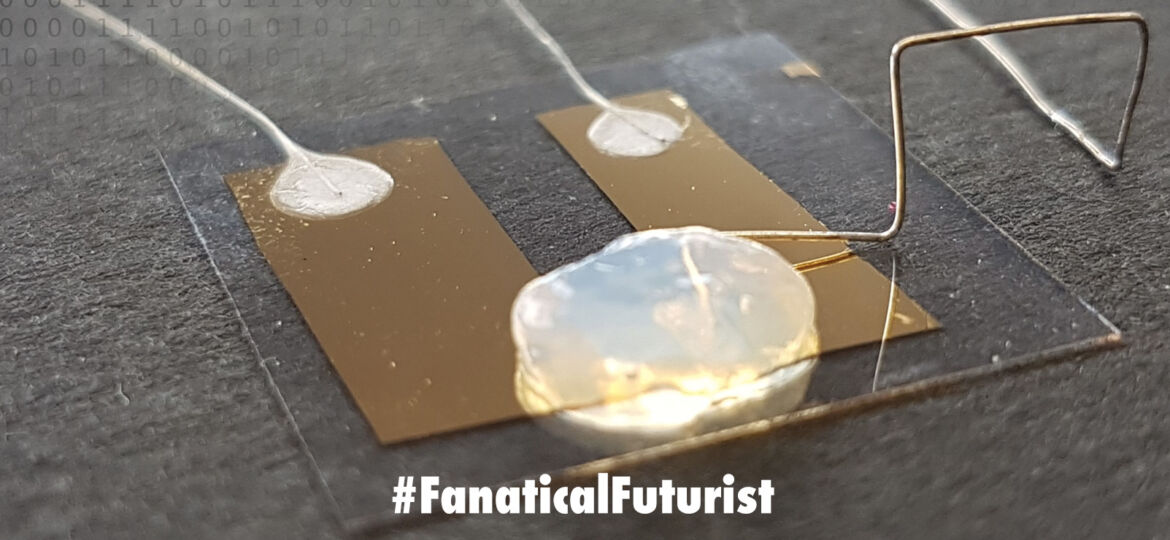
WHY THIS MATTERS IN BRIEF
As transistors get smaller companies are going to be able to create computers that are orders of magnitude more powerful and energy efficient than today’s platforms.
Over the past couple of years we’ve seen the development of a wide range of transistors that push the limits of today’s technology, from the creation of revolutionary liquid transistors that could usher in the first liquid computers, to the development of the world’s smallest transistor that’s just 0.5nm in size and uses 14 atoms to work. Now though a team of researchers at Karlsruhe Institute of Technology in Germany have smashed that record to create the world’s smallest transistor, and what many people think mark the limit of transistor miniaturisation – a quasi solid state quantum transistor set in gel that uses just a single atom, and that, even more impressively, operates at room temperature.
Not only does the teams breakthrough point toward the arrival of major new frontiers in computing power, but it will also help make today’s power hungry computing platforms incredibly power efficient. Transistors, which control the flow of electronic signals, are the basis of all modern electronics, and the steady reduction in the size and energy consumption of transistors has been the fundamental driver of advances in computing power for more than half a century.
The new transistor moves a single atom of silver to open and close a circuit with the materials science news site Nanowerk describing it as the world’s smallest transistor. More importantly though the new device is described as a so-called “Quantum switch,” meaning it can carry more complex information than the binary “on-off” signal of today’s transistors.
The most notable claim made by the researchers is that the switch can operate at room temperature, while most quantum computing elements can only operate at extremely low temperatures that are near Absolute Zero (-273C or -459F), making them more expensive and difficult to maintain. A peer-reviewed paper describing the new device was published in June in the journal Advanced Materials.
According to the researchers, their innovation could have a major impact on the future of computing, particularly in energy efficiency. Thomas Schimmel, head of the research team and co-director of the Center for Single-Atom Electronics and Photonics, says the switch could use less energy than today’s silicon technology “by a factor of 10,000.”
“This quantum electronics element enables switching energies smaller than those of conventional silicon technologies by a factor of 10,000,” says physicist and nanotechnology expert Thomas Schimmel, who conducts research at the APH, the Institute of Nanotechnology (INT), and the Material Research Center for Energy Systems (MZE) of KIT, “by using an electric control pulse, we position a single silver atom into this gap and close the circuit. When the silver atom is removed again, the circuit is interrupted.”
As with most developments in quantum computing, this one, even if it can be economically produced at scale, is likely years from deployment in real-world computers. This transistor’s use of all-metal construction, rather than semiconductors, means it won’t be easily integrated into conventional computing architectures. But when they do arrive, quantum computers will do much more than save energy, which is why major players, from Google and IBM to Microsoft, are investing billions in developing the technology.
Source: KIT
















